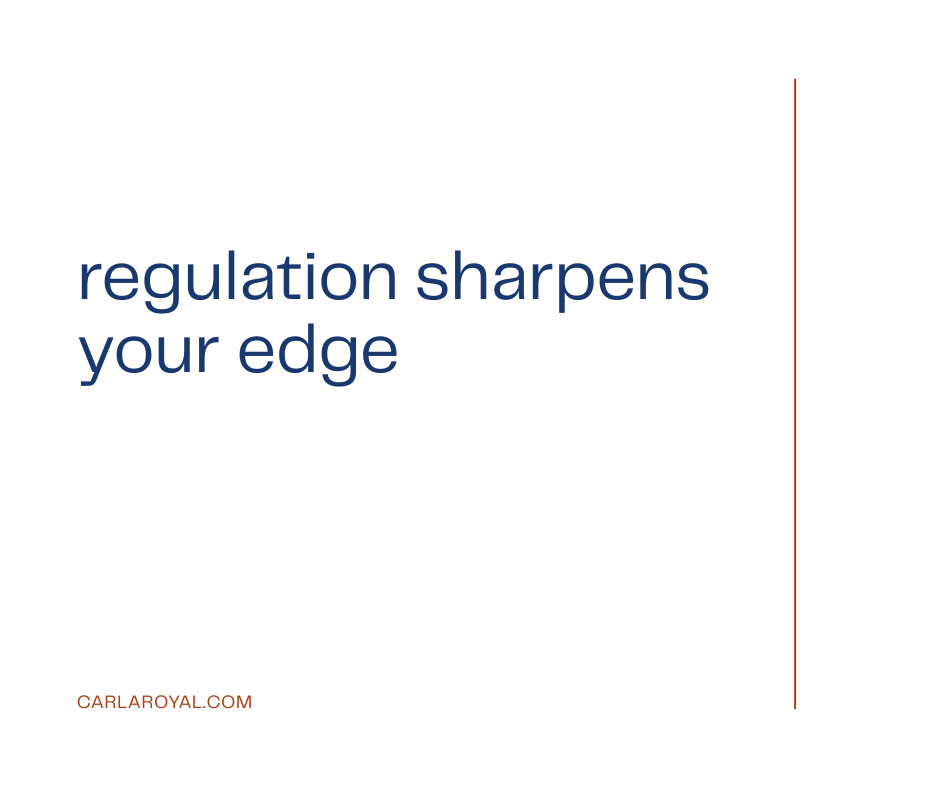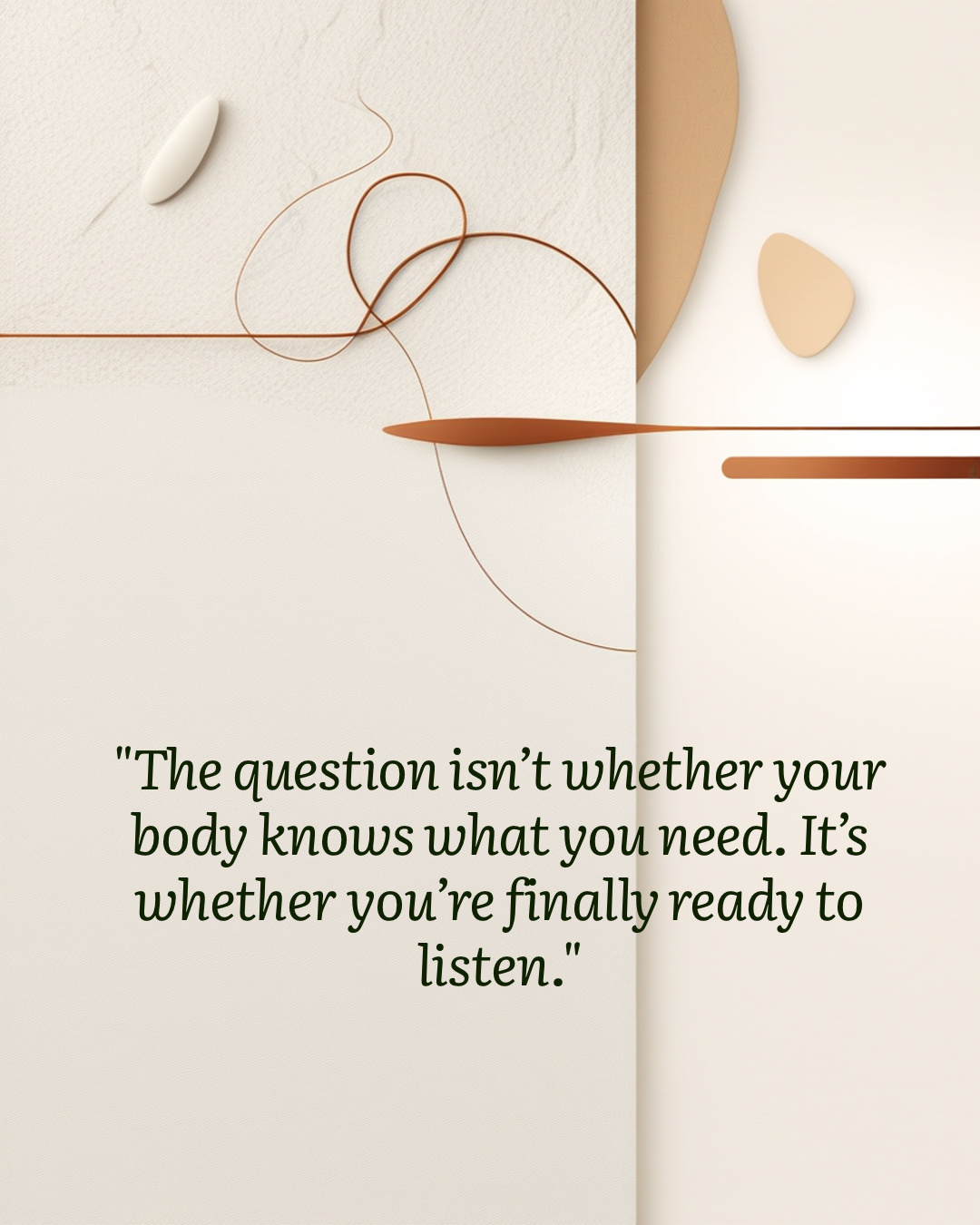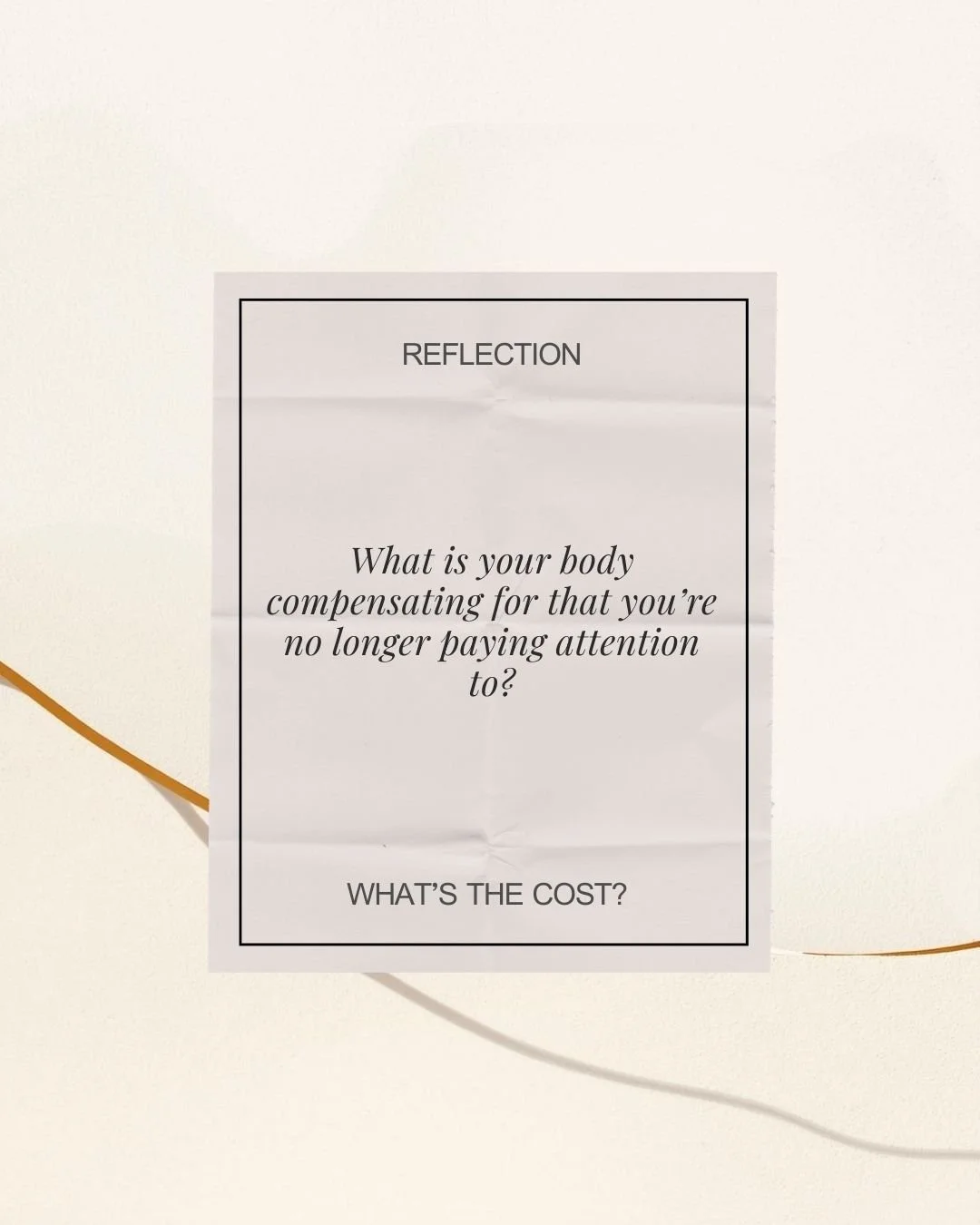When people gain clarity, they often want to act quickly. Once they have an insight, their first thought is to make a plan or a decision. Many of the people I work with see clarity as a signal to take action. You spot a problem, fix it, and things feel manageable again because you’re doing something.
This approach can work for years. It may have built your career or your company. It feels familiar and strong.
When Clarity Points to the Cost, Not the Solution
But clarity isn’t always pointing you toward the next move. Sometimes it’s pointing you toward the bill.
Sometimes, understanding more doesn’t give you answers. Instead, it reveals what has been too much for too long. You notice the workload that only seemed possible because you pushed yourself too hard. You see expectations that relied on you always being alert and overly responsible.
At those times, clarity isn’t telling you to act right away. It’s asking you to pause and see what you’ve been trying to compensate for.
What Happens When Momentum Drops Away
This is often when things start to feel uncomfortable. Without the old pressure, your momentum fades. The habits you relied on don’t just take over. Decisions come more slowly. You feel more vulnerable because you’re not ignoring your own signals anymore. You begin to notice the real cost of how things are set up, instead of avoiding it.
If you’re used to moving fast or pushing through, slowing down can feel risky. It might seem like you’re losing your edge or falling behind. On the outside, it can look like you’re less resilient.
But what’s really happening is that you’re no longer forcing yourself to hold everything together no matter what.
When Regulation Stops Being About Performance
When you stop using regulation just to keep performing, you start to notice what you’ve been missing. You might feel tired earlier in the day or get irritated more quickly. You may need more time to recover after a tough conversation or a hard week. This doesn’t mean you’re weaker. It means you’re finally noticing what your body has been handling all along.
This is often when high performers start to worry. The old habit of thinking “I can handle it” begins to fade. That extra push isn’t always there. They may wonder if this process is making them less tough.
It’s not. What’s really happening is you’re losing the habit of always pushing past your own limits.
When Things Get Harder Before They Get Easier
As regulation starts to feel more normal, some things may get harder for a time. You might feel less efficient or unable to handle as much. Looking at your schedule or your team, you may realize things only worked before because you were pushing yourself too hard.
At the same time, some things become easier. It takes less effort to get through a normal day. You’re not using as much energy just to cope. As the constant strain fades, something important returns: your judgment.
Regulation vs. Just Holding It All In
This is where people often misunderstand regulation. Many think it means staying calm no matter what. They believe being “regulated” is about tolerating more and always showing up. In that view, the goal is to feel less so you can handle more.
But that’s not regulation. That’s just holding everything in.
I notice this when someone learns to regulate just enough to stay steady at work. They react less in meetings, don’t snap at their team, and can handle tense board calls without feeling overwhelmed. On the surface, things look better. But nothing outside has changed. The workload is still too much, expectations are still unrealistic, and the pace still demands more than anyone can give for long.
At that stage, nervous system work just becomes a way to keep going in a situation that’s already too demanding.
It seems like progress because your behavior improves and nothing falls apart. But underneath, it means ignoring more signals, becoming less sensitive, and staying a bit disconnected from what your body is telling you about limits and cost. You look “regulated,” but inside, you’re just more controlled.
What Real Regulation Restores
Real regulation is different. It lets you use your full intelligence again. You feel pressure but stay connected to reality. You can see tradeoffs and limits clearly. Options you hadn’t considered before start to appear, like changing your role, renegotiating your workload, letting go of something that doesn’t fit, or deciding a certain burden isn’t worth it anymore.
That’s the real change. The main question shifts.
A Judgment Question, Not a Performance One
It’s no longer about “How do I handle all of this better?” or “How do I stay calm while doing the same things?” Now the question is, “Given what this costs me, is it still worth it?” Not in a dramatic way, but in a clear, grown-up way.
That’s a question of judgment, not performance.
When Clarity Becomes a Mirror
For those who have always been the ones to handle more, this can be the hardest part. Clarity stops being a tool for better performance and becomes a mirror. Regulation stops being about carrying the same load more smoothly and starts being about asking if the load is still right for you.
You might not like everything you see from this new perspective. You may notice relationships that depend on you doing too much. You might see business models that expect you to never stop. You may realize how often you’ve treated your own energy as endless while looking out for everyone else.
Getting Your Choices Back
The goal isn’t to make you change everything at once. The goal is to give you your choices back.
Clarity isn’t meant to push you toward a certain choice. It’s there to show you the real situation so your decisions are solid. You might choose to keep carrying a heavy load for a while, but you’ll know the cost and understand it’s your choice. Or you might start making smaller changes, like cutting back on commitments, saying no sooner, or being honest about your limits earlier.
From the outside, these changes don’t look dramatic. There’s no big announcement or major reinvention. It’s just a change in what you’re willing to accept and what you’re not.
The Question That Signals Real Change
So if you’re noticing more, feeling more, and moving more slowly, it doesn’t mean you’re losing your edge. It might mean you’re no longer willing to use yourself as the buffer for everything.
The real question isn’t “Why am I not calmer yet?” or “Why am I still tired?” The real question is, “Now that I see the true cost of how I’m living, what am I still willing to carry, and what am I not willing to carry anymore?”
If regulation and clarity are working, that question will be harder to ignore. That’s where real change can begin.













